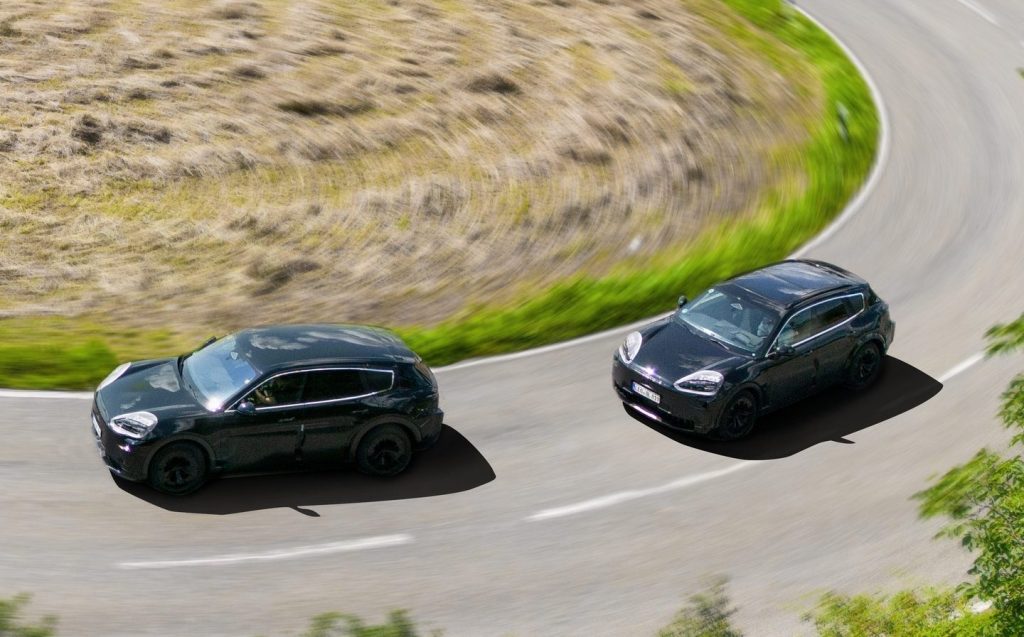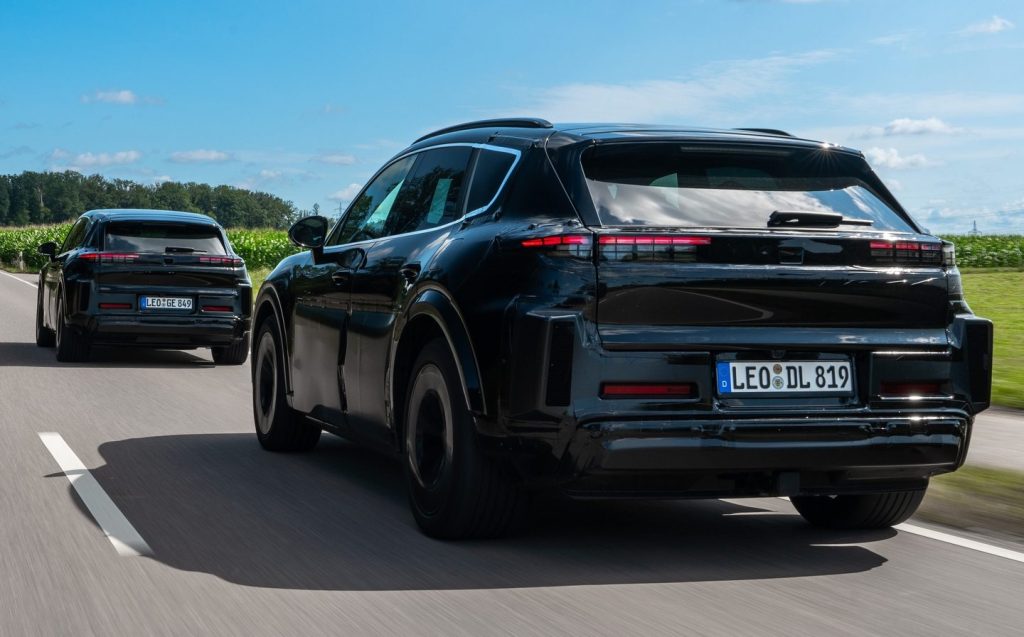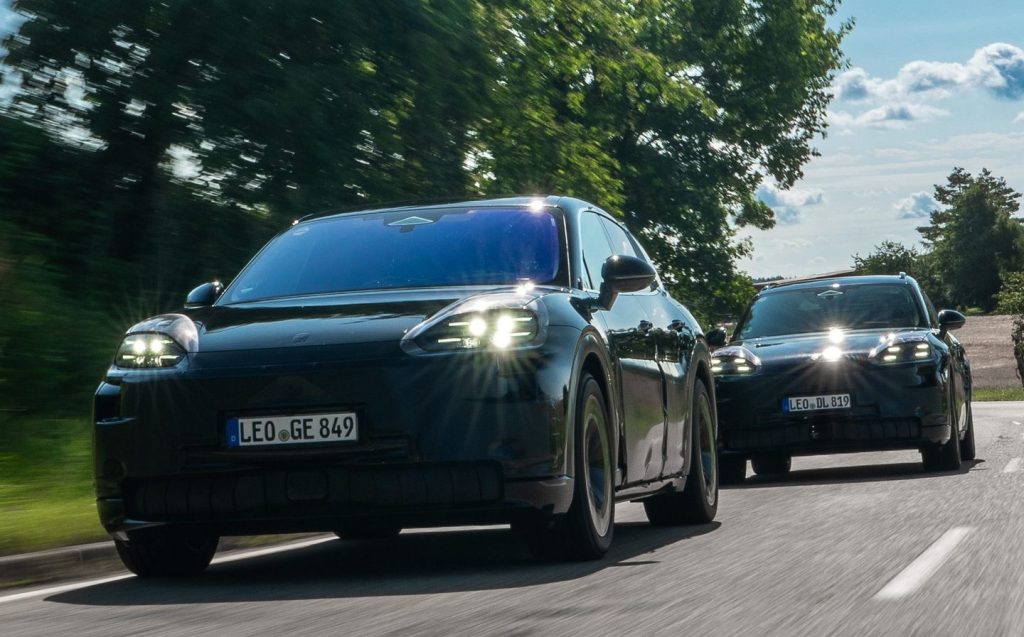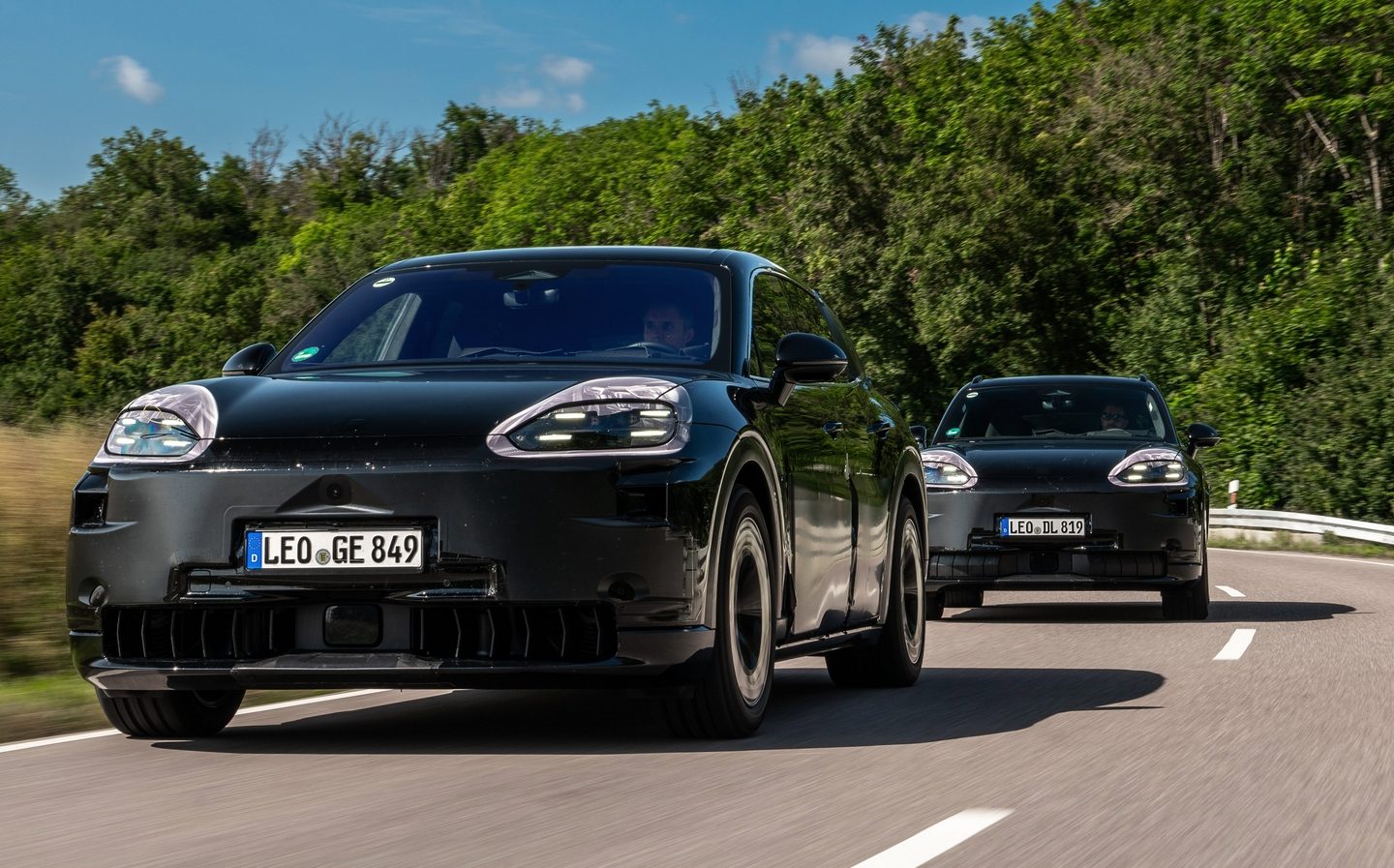Porsche has begun testing the electric Cayenne
But there's life in the V8 version yet
Testing of the next-generation pure-electric Porsche Cayenne SUV has begun, the German carmaker has confirmed, ahead of its likely arrival in late 2025. But fans of combustion engines need not weep: the new Cayenne will also come with hybrid and V8 petrol power, the company has confirmed.
Porsche will continue to offer fossil-burning Cayennes alongside the new electric version to satisfy the many customers worldwide who still want to own such a model, in markets where new petrol and diesel vehicles are soon to be outlawed.
The decision to add electric power to the Cayenne, which has been in service across three generations and more than 20 years so far, to electric power was assumed but only confirmed today by Porsche’s CEO, Oliver Blume.
He said: “Our product strategy could enable us to deliver more than 80 per cent of our new cars fully electrified in 2030 — depending on the demand of our customers and the development of electromobility in the regions of the world.”

The new Cayenne will be a key part of that, according to Blume: “[It] has always defined the sports car in its segment. In the middle of the decade, the fourth generation will set standards in the segment as an electric SUV.”
A range of 400 miles?
Porsche already makes the Taycan and Macan as pure-electric vehicles (EVs), with the Cayenne set to sit on underpinnings dubbed internally as the Premium Platform Electric (PPE) architecture.
This is an all-new platform that has been developed by the Volkswagen Group specifically for higher-end large EVs from Audi and Porsche, which cannot use VW’s MEB underpinnings as their basis.
MEB is used for the likes of the Volkswagens ID.4 and ID.5, as well as the Skoda Enyaq, Cupra Tavascan and a whole lot more besides.

But PPE is reserved for grander models. It’s currently the basis for the latest Macan, as well as the Audi Q6 e-tron SUV and the incoming Audi A6 e-tron family of saloons and estates.
Even the sporty Taycan grand tourer doesn’t benefit from PPE — its platform is a bespoke item called the J1.
The plus points of PPE revolve around the fact it is based on an advanced 800-volt electrical system. This allows for ultra-rapid DC charging of up to 270kW (which is more powerful than Tesla’s latest V4 Superchargers), which in turn means cars can typically have larger battery packs to allow them to go further, because they can be replenished in short order.
Indeed, the present four-model Macan line-up can go between 367 and 398 miles to a single charge, while the Q6 e-tron is slated to do more than 370 miles between battery top-ups.
The incoming Audi A6 e-tron, however, is slated to go up to 466 miles on a single charge. This is helped by the fact that it is a lighter, lower and more aerodynamic machine than the Cayenne is likely to be.
Although no official figures have been released, based on its related models we’d therefore expect the electric Porsche Cayenne to offer in the region of 370-400 miles to a charge, especially as the company hinted the Cayenne would be placed on an “evolution” of the PPE set-up.
Millions of miles of testing
And that could lead to an even faster SUV than we’ve already seen in this class, where the Cayenne has always been one of the sportiest and most desirable models of its type.
Michael Steiner, member of Porsche’s board for R&D, said: “The flexibility of the PPE architecture allows us to integrate the latest technology in the fields of high-voltage systems, powertrain and chassis.
“We are going to utilise the potential of electrification to take the Cayenne to a completely new level in a number of ways — for instance, in driving performance.”

Following early proving work at the Weissach Development Centre in Germany, camouflaged prototypes of the next-gen electric Cayenne have emerged from Porsche’s factory and headed out into the world for an accumulated testing phase that will incorporate millions of miles of rigour.
Michael Schätzle, the vice-president for the Cayenne product line, added: “The real-world testing has begun, and this is one of the most important milestones of the development process.
“In this way, we ensure the durability and reliability of the hardware, the software and all the car’s functions in accordance with our high-quality standards.”
Still a place for petrol power
But while the new car is generating buzz, it’s the admission that the combustion Cayenne will continue alongside it which raises eyebrows the most.
PPE is not adapted to take any form of ice engine at all, even if it was part of a PHEV drivetrain, so for those wanting an engine of some sort in their Cayenne, it will likely be base on the Mk3, which will soldier on until 2030 alongside the EV.
Last year, Porsche subjected the current model of the SUV to one of its most extensive product upgrades in the company’s history. Blume said that this updated version would be “further developed with major technological investment in the future”.
This includes a new version of the mighty 4-litre biturbo V8 petrol engine that’s the basis of the Cayenne range, with Porsche explicitly referencing the unit when it said it will ensure the motor is “ready to comply with future legislative requirements”.
Blume concluded that, while Porsche is committed to a future of electromobility, it wanted to keep existing clientele happy, with ice and hybrids confirmed not just for the Cayenne, but other product lines too: “At the same time, into the next decade our customers will still be able to choose from a wide range of powerful and efficient combustion and hybrid models.”
Related articles
- If you found news on the future of the Porsche Cayenne interesting, you might like to read a review of the updated Porsche Taycan
- Or read our review of the new electric Porsche Macan
- You might also like to read our review of the BMW M3 Touring
Latest articles
- Skoda creates digital showroom on Amazon in European first
- Porsche 911 Carrera S 2025 review: Harder, better and faster – but is it the best 911?
- F1 2025 calendar and race reports: The new Formula One season as it happens
- Seven great automotive events to visit this summer, from F1 to art and champagne
- Watch new Porsche 911 GT3 smash Nürburgring record for manual cars
- Skoda Elroq 2025 review: Czech carmaker can’t seem to miss with its electric family cars
- Five best electric cars to buy in 2025
- Should I buy a diesel car in 2025?
- Zeekr 7X AWD 2025 review: A fast, spacious and high tech premium SUV — but someone call the chassis chief














